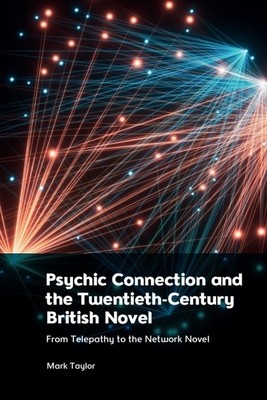
- We will send in 10–14 business days.
- Author: Mark Taylor
- Publisher: Edinburgh University Press
- ISBN-10: 1399524488
- ISBN-13: 9781399524483
- Format: 15.6 x 23.4 x 1.3 cm, kieti viršeliai
- Language: English
- SAVE -10% with code: EXTRA
Psychic Connection and the Twentieth-Century British Novel (e-book) (used book) | bookbook.eu
Reviews
Description
Criticism of the novel routinely starts with the assumption that characters must think, develop and strive for self-fulfilment as individuals. This book challenges the paradigm that individualism is innate to the novel as a medium. It describes how major writers throughout the twentieth century - many convinced by the supposed findings of parapsychology - rejected the idea of the discrete character. Treating the self as porous, they offered novels structured around the development of communities and ideas rather than individuals. By focusing on D. H. Lawrence, Olaf Stapledon, Aldous Huxley and Doris Lessing, Mark Taylor demonstrates the need to broaden our approach to character when addressing the novel of the twentieth century and beyond.
EXTRA 10 % discount with code: EXTRA
The promotion ends in 22d.03:52:50
The discount code is valid when purchasing from 10 €. Discounts do not stack.
- Author: Mark Taylor
- Publisher: Edinburgh University Press
- ISBN-10: 1399524488
- ISBN-13: 9781399524483
- Format: 15.6 x 23.4 x 1.3 cm, kieti viršeliai
- Language: English English
Criticism of the novel routinely starts with the assumption that characters must think, develop and strive for self-fulfilment as individuals. This book challenges the paradigm that individualism is innate to the novel as a medium. It describes how major writers throughout the twentieth century - many convinced by the supposed findings of parapsychology - rejected the idea of the discrete character. Treating the self as porous, they offered novels structured around the development of communities and ideas rather than individuals. By focusing on D. H. Lawrence, Olaf Stapledon, Aldous Huxley and Doris Lessing, Mark Taylor demonstrates the need to broaden our approach to character when addressing the novel of the twentieth century and beyond.


Reviews